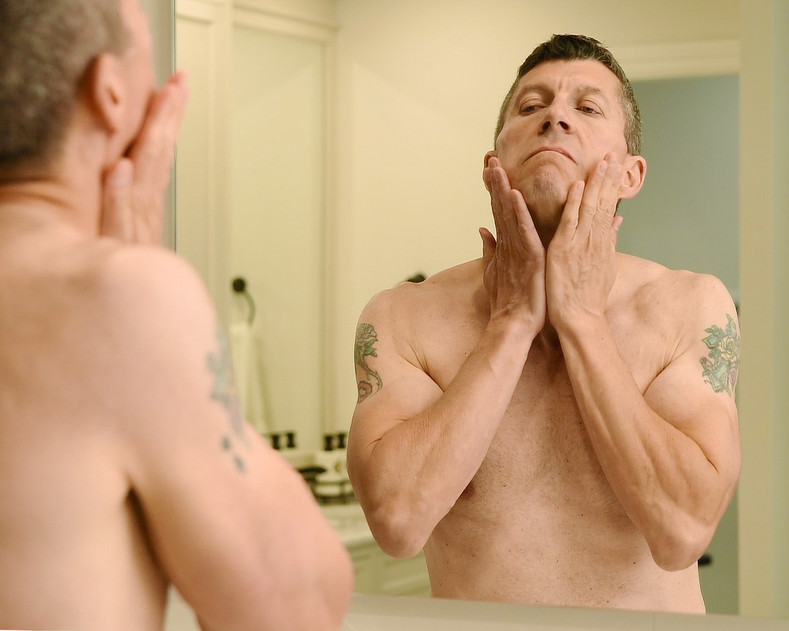THE TRUTH ABOUT ALCOHOL-BASED AFTERSHAVE

You may have heard that topical use of alcohol is bad for your skin.
It’s time to put that myth to rest and set the record straight.
Fine® aftershaves contain alcohol because of its amazing benefits - it’s been used as an antiseptic after shaving (and for minor injuries) for generations for good reason – it treats and prevents infections that can delay or prevent healing.
Not to mention that satisfying visercal rush from the alcohol sting we all love so much.
We wouldn’t be shocked if some Fine shavers revolted if we attempted to substitute that amazing aftershave feel for some feeble alternative.
"the evidence points towards alcohol being both less damaging and less drying to skin than soap despite the conventional wisdom of the opposite. Our theory is that it’s actually the alcohol burn that has lead to this erroneous conclusion, so we’re doing our best to set the record straight."
Clinical studies have shown again and again that alcohol does not harm your skin and is substantially less drying than soap.
A quick summary of the findings:
- Studies comparing alcohol hand rubs to soap and water have shown that alcohol does not have a significant impact on skin.
- These results were found even when alcohol was applied up to fifty times, twice a day, for two weeks, which is obviously much greater exposure than any aftershave user will ever experience.
- When alcohol is applied to skin, like with aftershave, it evaporates very quickly. This makes real-world applications (in vivo) very different from merely dowsing skin cells with alcohol in a petri dish (in vitro). Unfortunately all those old experiments - that gave alcohol such a bad reputation - utilized the later approach.
So, why does alcohol sting?
Let’s dive into that, as the sting of an aftershave could make someone believe that the skin is somehow being damaged. That’s not the case.
What’s actually happening is that the alcohol is activating the same sensory receptors that are so familiar to anyone who enjoys spicy foods!
In both cases, there is no actual temperature increase or tissue damage, it’s just that the receptors which typically warn of such occurrences have been chemically triggered.
This is also the same effect that can be felt in the esophagus when swallowing a shot of high-proof alcohol. It can certainally be intense, but is in no way harmful.
In Conclusion:
Overall, the evidence points towards alcohol being both less damaging and less drying to skin than soap despite the conventional wisdom of the opposite. Our theory is that it’s actually the alcohol burn that has lead to this erroneous conclusion, so we’re doing our best to set the record straight.
So go ahead, indulge in the satisfaction that comes with a post-shave splash - worry-free!
For those wanting to learn more, read this piece about antiseptics and your skin from Live Science, and there’s a great article on the real deal on alcohol and skincare from Dr. Michelle Wong and with contributions from cosmetic creator Stephen Ko. Any remaining callouts are meticulously addressed there.
Alright, now that you're armed with the facts, you can take it one step further.
Grab an aftershave, slap it on and show 'em who the real expert is.
